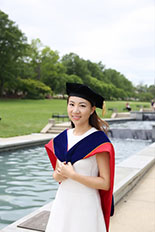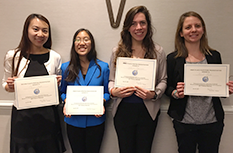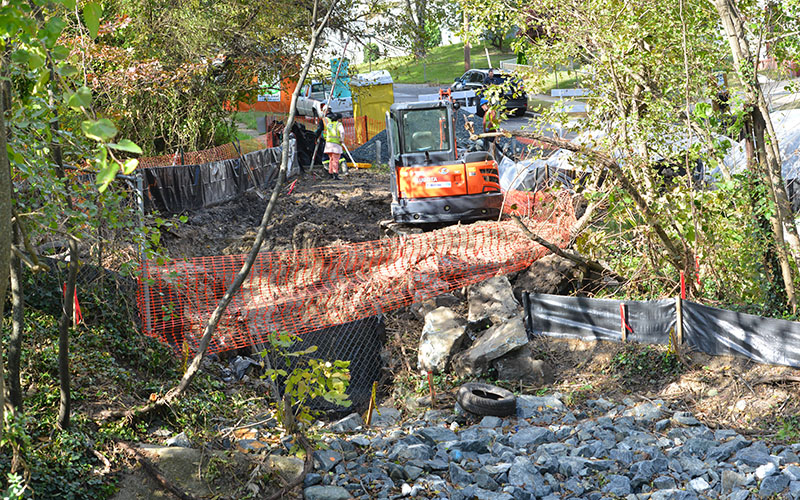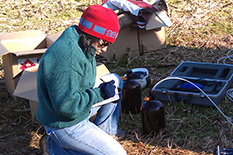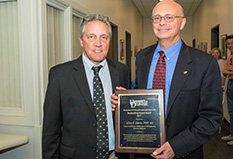News Story
Aaron Leininger Receives GDF-Suez Chuck Edwards Memorial Fellowships
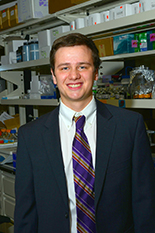
Department of Civil and Environmental Engineering (CEE) master’s student Aaron Leininger was last month awarded a GDF-Suez Chuck Edwards Memorial Fellowship. Administered by the Center for Environmental Energy Engineering, the fellowship provides a $25,000 stipend to support research on energy systems and devices with the potential for quantifiable energy savings or carbon dioxide emission reduction.
Leininger is the first CEE student to receive the GDF-Suez Chuck Edwards Memorial Fellowship.
With guidance from advisor Birthe Kjellerup, Leininger will spend the next year developing a field-scale energy recovery system to be deployed at DC Water’s Blue Plains Advanced Wastewater Treatment Plant.
Wastewater treatment plants are among the largest single energy consumers in the nation, and the majority of that use goes to adding oxygen to support aerobic processes used during treatment.
“Aerobic processes are incredibly energy inefficient,” said Leininger, who interned with DC Water over the summer. “It takes a lot of energy to create aerobic conditions, and the energy transferred during the processes is then not recovered. These aerobic processes also release large amounts of carbon dioxide into the atmosphere."
“We are using energy to waste energy,” he added.
Leininger’s system would retrofit a stage of the treatment process by incorporating two sections connected by an external circuit. This microbial fuel cell functions like a sort of battery. In one chamber, specially chosen bacteria break down and remove electrons from organic matter in the wastewater. The electrons travel through the external circuit, generating a current that can power electrical devices. At the same time, the hydrogen ions move through a center membrane to a second, aerobic section, where they meet up with the electrons returning from the electrical current to form water.
The project will also examine a related technology, microbial electrolysis cells, which adds a supplementary voltage to recover energy in the form of hydrogen gas.
Microbial fuel and electrolysis cells have proven successful at smaller scales in the lab, but Leininger’s project will be one of the first globally to test performance inside a working treatment plant.
“The long-term goal is for wastewater treatment to be a net-neutral process, meaning that it produces as much energy as it consumes,” he said.
As a first step, Leininger and Kjellerup will determine where in the Blue Plains system a microbial fuel cell would generate the most electricity.
As a participant in CEE’s combined B.S./M.S. program, Leininger is slated to complete his master’s in 2018.
Published October 10, 2017

